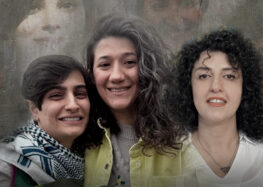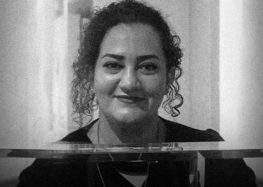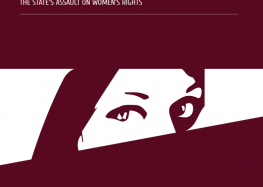Official Statements on Women: State-Sanctioned Discrimination
Hassan Rouhani’s election in June 2013 triggered a backlash by hardline state officials and conservative clerics anxious to assert their dominance in the domestic sphere. Women’s issues, always dominant in the ideology of the Islamic Republic, assumed particular importance in this power struggle and use of the bully pulpit to make strident public statements promoting a more restrictive view of women’s place in society increased palpably after Rouhani’s election.
These statements were disseminated through the state-run media, Friday prayers, and official speeches throughout the country. They presented ultraconservative views on women and gender policies as mandated by their interpretation of Islam (as well as a national security imperative to guard against infiltration by the West), and, through their explicit references to the necessity of public enforcement of these views and policies, lay the groundwork for vigilante groups to take matters into their own hands.
On July 9, 2013, a leading cleric Ayatollah Makkarem Shirazi stated,
“The issue of improper hijab has…become a political issue. The enemies of the state believe that they can harm us through spreading bad hijab practices. On the other hand, we believe if we deal with (and end) improper hijab we will strengthen the state. …If we don’t protect hijab in society, we will harm the state. Anti-revolutionaries would use every opportunity to get rid of the hijab and harm us. Unlike what Westerners claim, the hijab should not be a choice. Protecting hijab is our moral and religious duty.”
In September 20, 2013, Ayatollah Jannati, the head of the Council of Guardians, stated during a Friday Prayer sermon,
“We have passed the chastity and hijab law and don’t enforce it. We’ve told the President that he should start (addressing the issue) by enforcing proper hijab on those whose salaries we pay. Public employees should comply with proper Islamic hijab. …Why do women take off their chadors and become ruined after getting accepted into universities? …If a student has a bad hijab, she should be banned and her grade should reflect her conduct.”
Also in September 22, 2013, Grand Ayatollah Lotfollah Safi Golpayegani in Qom, in a speech to Revolutionary Guard commanders said,
“Getting rid of the hijab is the most significant way of diverting society (from the righteous path). You Guards are the protectors of our beloved Islam, and as such you must be in the forefront of promoting virtue and preventing vice.”
On November 22, 2013, Major General Hassan Firouzabadi, Commander-in-Chief of the Armed Forces, said,
“On occasions when immodest clothing is systematically used to destroy the Revolution’s image, as it was done during the 2009 riots by the direction of satellite channels [a reference to the peaceful citizen protests after the disputed 2009 presidential election in Iran], the issue of the hijab becomes a national security issue. In such cases, security institutions should comply with their responsibility and counter these systematic activities of anti-revolutionaries.” He added, “If cultural and social measures, and promoting virtue and preventing vice do not work, the police and judiciary should bring legal action. We need to address the issue [of] hijab comprehensively and with precision.”
In April 16, 2014, Grand Ayatollah Nouri-Hamedani, asserted in a lecture,
“Today we see that in Tehran and big cities that nothing is done to promote virtue and prevent vice in regards to the hijab. In these areas, ladies wear scarves that don’t cover their hair. We must do what is necessary and promote virtue and prevent vice more often.” In a speech a few days later he added, “One of the country’s biggest cultural issues is the issue of chastity and hijab. Unfortunately, we are not dealing with it properly. The government must begin enforcing chastity and hijab in government offices and slowly spread this effort to other areas.”
Ayatollah Seyed Morteza Mahmoudi, Friday Prayer leader in Varamin, said on November 5, 2014,
“If preventing vice and promoting virtue becomes a more wide spread practice in society, certainly many of our problems will be solved…. In Varamin some volunteer groups have begun promoting virtue and preventing vice. When they see individuals who are not following Islamic norms, they go up to them and very nicely warn them. These groups’ actions on the streets and other public areas have been somewhat effective. If everyone joins this trend, we would see greater results.”
These statements, just a sampling of the many made by hardline officials and conservative clerics, have not only promoted an ultraconservative interpretation of Islamic piety, they have legitimatized and mandated public enforcement of this interpretation. This has led directly to the violent assault of women by vigilante groups.
Hardliners who have sought to propel their vision of women’s proper role and place in society into the realm of law imposed on all Iranian women, have been empowered above all else by the unequivocal support they receive from Iran’s Supreme Leader, Ayatollah Khamenei. In April 19, 2014, he stated,
“If we want to have a healthy, rational, and accurate view of women’s issues we must first rid ourselves from what Westerners say about women; statements about women’s employment, women’s leadership and gender equality. The concept of gender equality is one of Western philosophy’s biggest errors about women’s issues.”




